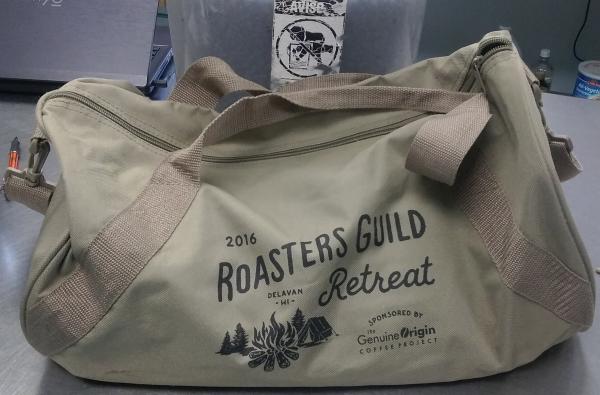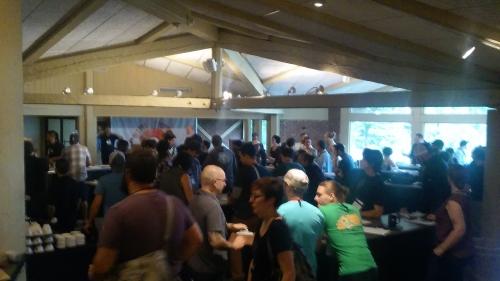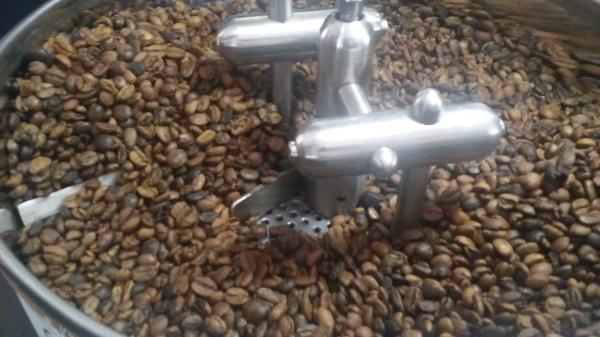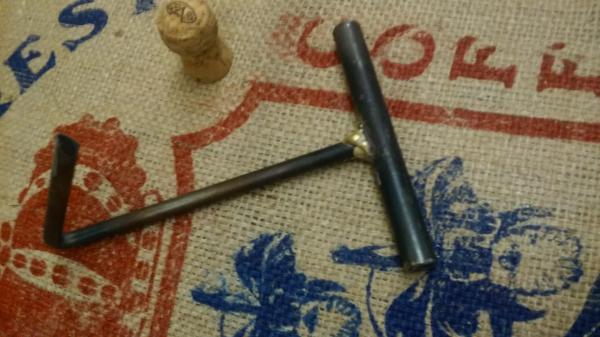Retreat Recap
I was recently at Roasters Guild Retreat hanging out with other coffee roasters and station instructing some classes (see What I'm Doing at Roasters Guild Retreat).

The highlight of this event has to be the roasting tent. I don't know of any event where you can play on so many different roasting machines from so many different roaster manufacturers. Somehow this keeps getting bigger and this year there were some new machines that were at Roasters Guild Retreat for the first time, including a tiny new Loring that I don't think has been seen at any prior event. This included a mix of small production roasters as well as various sample roasters. As there are so many different machines with different designs and different controls that facilitate different approaches to coffee roasting, it's a great opportunity to try a machine that's very different from what you might already be familiar with.
All of the production roasters also had computers hooked up to them running Cropster (in a somewhat crippled state because there are a lot of basic functionalities in that which just don't seem to work when Internet access is unreliable as is often the case at trade events like this), Artisan, or Logging Dynamics (at least one machine with automation capabilities available to use). That was great to see and I think that people really liked having those capabilities easily at hand throughout the event. None were set up with Typica, though the vast majority of the machines could have been with no change in hardware and this is somewhat unfortunate because I kept seeing people trying to do things that are trivial to accomplish in Typica but unintuitive or impossible with how things were set up in the roasting tent. That was especially true during the roasting classes where Typica would have been a much better fit for what students were attempting to accomplish. I may be biased, but I left unimpressed with the competition on display. Roaster manufacturers, talk to me. Your customers deserve better.

Several classes were offered at this event. I was helping out at the stations for four of them: one cupping class and three roasting classes (though I also ended up being a table lead for a session on a new roast evaluation form, I think just because the people running that knew that I've used the form in question extensively). Perhaps the most exciting of these for me was the newly updated heat transfer class. Each group had a different set of roasts to accomplish with the purpose of seeing how changes to a single variable can affect heat transfer into the coffee. I was on a Giesen roaster for this which has a sensor that measures exhaust pressure and a controller that lets you set a desired value for that and have it adjust the fan speed to maintain that regardless of the size of your batch or whatever else is happening in the exhaust stack. A light roast at 160Pa was the fastest of the three batches yet also the batch with the best physical development. Cranking it up to 200Pa resulted in a slightly slower yet less developed roast as air was being removed from the system before it could be heated as much. Lowering it to 110Pa resulted in a still slower roast (also less developed than the 160Pa batch) but with most of the slow down happening early in the roast and a significant acceleration during first crack. It would be interesting to repeat that with a French Roast and with a couple additional points between the extremes. Other groups were running similarly interesting experiments with things like changes in drum speed, variations on maintaining stable exhaust temperature, burner settings, batch sizes, and starting temperatures. As expected, each group produced coffees with distinct, tastable differences. This range of experimentation in such a short amount of time is something that would be very difficult to pull off anywhere other than Roasters Guild Retreat.

I wasn't involved in the defect cupping class that was offered, but I did see the coffees getting roasted for that. I hear they were really bad.

As always, I had a lot of great conversations and my throat is still a little sore from excessive talking. I got to talk with people about roaster modifications, different approaches to coffee roasting, things in Typica that help with roasting more consistently from batch to batch and across different machines, and many other topics. I've also lined up some additional training and consulting gigs for next year (email me if you're interested in bringing me out for something like that). I'll probably write more about those as they come up, especially ones that anybody can pay to attend.
Everybody who attends Roasters Guild Retreat gets a bag of stuff (retreat shirt, Swiss Water shot glass, travel mug, clipboard with rulers on the sides, trade magazines, coffee, and some other stuff), but it's also not uncommon that people just give me stuff. Probably the coolest thing I was given was a hand made bag hook, but I also got some other coffees, another shirt, and a couple of pins including the giant "Ask me about SCAA education" pin seen at the start of the video above. The bag that everybody got is also one of the most practical bags ever given out at this event.
 Typica: Software for Coffee Roasting Operations
Typica: Software for Coffee Roasting Operations